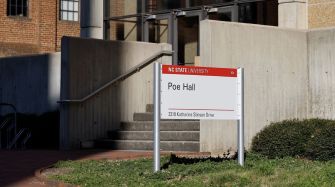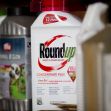North Carolina State University has filed a lawsuit against Monsanto Company and Pharmacia LLC, alleging the companies are responsible for toxic chemical contamination that forced the closure of Poe Hall, one of the school’s main academic buildings.
The complaint, filed October 1 in Wake County Superior Court, claims Monsanto and its successor entities manufactured and sold polychlorinated biphenyls, or PCBs, that were incorporated into adhesives, paints, caulks, and HVAC sealants during Poe Hall’s construction in 1971. The university contends that the contamination has rendered the building unsafe for use and will require complete demolition and replacement.
Poe Hall was shut down in November 2023 after preliminary air and dust sampling revealed elevated PCB levels in the building’s ventilation systems. The closure displaced hundreds of students, faculty, and staff from classrooms, research spaces, and offices. The university later expanded its investigation, which found widespread contamination throughout the structure.
Testing conducted between late 2023 and 2025 identified PCB concentrations far above the 50 parts per million threshold that triggers mandatory remediation under the federal Toxic Substances Control Act. According to the lawsuit, Aroclor 1262, a Monsanto-produced PCB mixture, was detected in air, dust, caulks, adhesives, and even surrounding soil. In a June 2024 letter, the U.S. Environmental Protection Agency confirmed that materials found at Poe Hall must be treated as hazardous PCB waste and removed.
NC State argues that Monsanto was aware for decades that PCBs were toxic, persistent, and prone to migrate into the environment, yet marketed them as safe for use in schools and other occupied buildings. The complaint accuses the company of negligence, defective design, failure to warn, public and private nuisance, trespass, fraud, and unfair trade practices.
The university is also seeking indemnity for workers’ compensation claims filed by employees who allege health problems related to PCB exposure while working in Poe Hall. Attorneys representing faculty and staff have already brought claims before the North Carolina Industrial Commission, and hundreds of additional exposure-related filings are anticipated.
The suit demands compensatory and punitive damages, treble damages under North Carolina law, and a court order requiring Monsanto to reimburse all past and future costs tied to investigation, abatement, demolition, waste disposal, and replacement construction. NC State also seeks declaratory relief assigning Monsanto responsibility for compliance with federal remediation requirements.
Monsanto, now a subsidiary of Bayer AG, produced more than 99 percent of all PCBs used in the United States until the chemicals were banned in the late 1970s. The company and its successor, Pharmacia LLC, linked to Pfizer through corporate reorganizations, have faced similar litigation nationwide over legacy PCB contamination.






